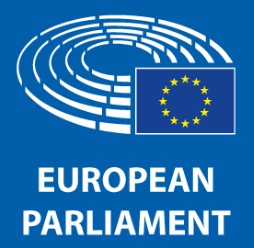Preparedness for future pandemics. A bridge between science and politics

| Project Title | Preparedness for future pandemics. A bridge between science and politics. |
| Dates | Autumn 2022 - Spring 2023 |
| Project Lead | Dr Davide Piaggio |
| Funder |
Pandemic preparedness is among the top priorities of scientists and policy makers. Organized in collaboration with European Alliance of Medical and Biological Engineering and Science (EAMBES) and the World Health Organisation (WHO), ABSPIE Lab is pleased to confirm the successful award of funding to co-lead and deliver on a European Parliament Policy Event in 2023.
Led by Associate Professor, Dr Davide PiaggioLink opens in a new windowLink opens in a new window with support from Professor Leandro PecchiaLink opens in a new windowLink opens in a new window, this project is aimed at fostering the dialogue between science and policy-makers through the co-creation and co-funding of an event at the European Parliament (EP), where policy-makers and representatives of science, members of World Health Organization (WHO) and scholars from the University of Warwick, will discuss ways for collaboration for future emergencies management, setting the basis for a policy change.
Key actors in emergency management across the fields of science and politics, although deeply interconnected, suffer from a lack of a proper and effective dialogue. The ABSPIE Lab's role will be crucial for the bridging the divide and enabling such dialogue to happen, in identifying and addressing the gaps for “multilevel future governance”.
As showed during COVID-19, the phenomena of “infodemics”, which covers instances of lack of trust, and scarce public engagement in pandemic responses, are clear examples of the misalignment among policy makers and scientists, resulting in confusion amongst the general public.
Despite facing pandemics for 2000+ years, our preparedness (prevention, prompt response, restoration) is lacking. Publishing guidelines and tools for emergency response (e.g., infection prevention and control, IPC) during COVID-19 proved to be insufficient to warrant effective preparedness and adequate governmental response. Critics reason a slow and cautious approach from the WHO in terms of warning about the human transmissibility of the virus, of declaring a Public Health Emergency, of endorsing the public use of face masks and other containment/prevention strategies. Governments too did not outshine the WHO, as their inter-coordination was inadequate to this respect. Several studies prove this view.
Unfortunately, the risk of future pandemics is higher than ever before. Due to this fact, there is an increased governmental interest in dealing with this kind of threat. This research will help shape future government responses to pandemics thanks to the acquired collaboration with science.
This project will build on the last R&D Blueprint WHO meeting "lessons for the future" and the WHO commitment to look for a “stronger global, regional and national pandemic preparedness, prevention, readiness and response”.
For these reasons, this project will focus on the existing gaps related to IPC and foster a dialogue between scientists and politicians through a Policy Event on pandemic preparedness and aftermath in Spring 2023.
- Maccaro A, Audia C, Stokes K, Masud H, Sekalala S, Pecchia L, Piaggio D. Pandemic preparedness: a scoping review of best and worst practices from COVID-19. InHealthcare 2023 Sep 18 (Vol. 11, No. 18, p. 2572). MDPI.
To be populated
